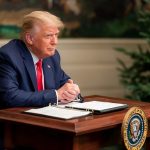Matt Taibbi is carving out a unique niche in today’s media landscape, one that makes him something of a political outcast among his peers. Formerly affiliated with left-leaning outlets like Rolling Stone, Taibbi has been steadfast in calling out not just the establishment but also his fellow liberals for their increasingly bizarre obsessions with censorship and free speech suppression. Despite his self-identification as a Democrat, his skepticism regarding the infamous Russian collusion narrative had long set him apart from the echo chamber that has characterized modern liberal journalism.
Taibbi’s solitary journey has become particularly interesting in the wake of the Biden administration’s tumble from grace and the IRS’s decision to back off from targeting him after his high-profile testimony before Congress on the Twitter Files. His exposé on the collusion between government censorship and social media platforms has positioned him squarely in a camp that values unfiltered discourse. The irony? A Democratic journalist is more in tune with traditional liberal values of free expression than many of his colleagues.
#AssociatedPress@AP lmao laughingstock now!
The Associated Press' Latest Statement About Trump Gave the Whole Game Awayhttps://t.co/TZ4cECrUGK
— ED BARTLETT (@BARTLETTED) February 20, 2025
Recent developments regarding the Associated Press and its contentious relationship with the Trump White House highlight the growing rift between the media and power. The AP finds itself sidelined for allegedly failing its own credibility test—failing to remain neutral in the face of a declining audience and waning influence. Taibbi has pointed out that this situation is a direct result of the once-mighty news agency leaning so heavily into leftist ideology that it has become nearly impossible to see straight. The AP style guide, once a bastion of journalistic integrity, is now a textbook example of politicized verbosity, insisting on ever-evolving language rules that reflect the left’s whims.
The AP’s complaint about being barred from the Oval Office over trivial disputes regarding language showcases the absurdity of their position. Instead of following their own principles of unbiased coverage, they allow politically motivated identity politics to dictate their reporting. Taibbi’s criticism zeroes in on the issue by highlighting just how far removed the AP is from the pressing concerns of the American public, which mostly doesn’t care about whether or not a news organization can attend a press briefing.
The actions taken by former President Trump to restrict access to certain organizations have drawn the ire of many, yet it’s hard to rally sympathy for news outlets that have consistently engaged in biased reporting. The real question remains: why would the Trump administration feel empowered to exclude the AP? Many will agree the AP’s decline in relevance has opened the door for such actions. When media outlets prioritize ideological posturing over reporting, they should prepare for the proverbial cold shoulder from politicians who are fed up with the vitriol and relentless negativity.
In the grand scheme of things, what Taibbi illustrates is simple yet profound: political influence isn’t a birthright for any media outlet. In a world where every click matters, the legacy of the Associated Press serves as a cautionary tale of how straying from journalistic decompression can lead to self-inflicted isolation. With Trump holding steady on his decision to keep the AP at arm’s length, it remains to be seen whether they’ll probe into their own shortcomings or continue to play the victim in a media environment that has long since moved on.




